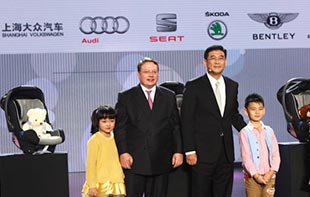

BEIJING -- China on Tuesday filed a complaint under the WTO's dispute settlement mechanism over anti-dumping measures by the United States against 13 types of Chinese products.
China has officially launched the WTO dispute settlement procedure and called for consultations with the US under the mechanism, the Ministry of Commerce (MOC) said in a statement.
"In its anti-dumping investigations and reviews, the US has inappropriately applied targeted dumping methodology, denied companies separate tax rates, and used unfavorable facts," MOC spokesman Shen Danyang said in a statement.
These practices, which do not comply with WTO rules, have resulted in Chinese products mistakenly deemed as having been dumped, and have severely magnified the dumping margins, Shen said.
The spokesman said anti-dumping measures launched by the US for 13 types of Chinese products, including oil well pipelines, involved a total export value of $8.4 billion.
"The wrong practices by the US have seriously damaged the legitimate interests of Chinese companies, and domestic industries are strongly dissatisfied with these practices," Shen said.
He said that China is resolutely against the misuse of trade remedy rules and protectionism. "China will also determinedly maintain its rights as a WTO member and safeguard the interests of domestic industries," he said.
He added that China wishes to seek negotiations with the US under the WTO dispute settlement mechanism, and hopes that the US can correct its wrong practices and properly address China's concerns.
Yang Guohua, deputy head of the MOC's treaty and law department, said that filing a complaint for 13 cases at a time points to a common mistake in the anti-dumping investigations of the US Department of Commerce.
"In the past, China used to file complaints for one kind of product at a time, which is far less cost-effective and efficient," Yang said.
In calculating duty rates, The US presumes that all Chinese export companies constitute a single entity controlled by the government and adopts the same duty rate for all companies, unless companies apply for separate rates and provide evidence that their export is not government-controlled.
However, the US refused to give separate rates even if Chinese companies provided sufficient evidence, such as in the anti-dumping cases for solar panels and warm-water shrimp.
The US's aim is to raise the anti-dumping duty rates for Chinese products, which greatly weakened the price advantages of Chinese companies, according to Yang. "Those are trade protectionism practices."
Yang said the odds of winning the complaint are high as China filed the complaint "after conditions for the cases were mature."
Prior to this, China had filed 12 complaints under the WTO's dispute settlement mechanism and won 11 of them.
 Model with German luxury cars
Model with German luxury cars
 Getting in the mood
Getting in the mood
 Models at Mercedes pavilion at 2013 Auto Guangzhou
Models at Mercedes pavilion at 2013 Auto Guangzhou
 Buick Riviera concept car at 2013 Auto Guangzhou
Buick Riviera concept car at 2013 Auto Guangzhou
 FAW-VW all-new Golf at Guangzhou auto show
FAW-VW all-new Golf at Guangzhou auto show
 VW donates more than 5k child safety seats
VW donates more than 5k child safety seats
 Honda models at 2013 Guangzhou auto show
Honda models at 2013 Guangzhou auto show
 Honda Jade at the 2013 Guangzhou auto show
Honda Jade at the 2013 Guangzhou auto show